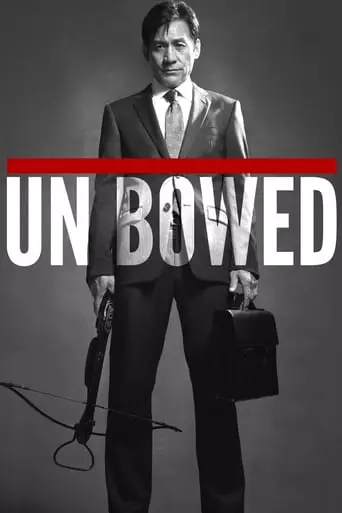
Unbowed (2011) Watch Online Free
Inspired by the true story of Kim Kyung-ho, a math professor who was arrested for shooting a crossbow at the presiding judge of his appeal against unfair dismissal.
Unbowed (2011) is a gripping South Korean courtroom drama that explores the story of Kim Kyung-ho (played by Ahn Sung-ki), a math professor who becomes embroiled in a fight for justice after being wronged by a university and its legal system. Based on a real-life case, the film’s plot centers around Kim’s retaliation against a corrupt judge, who he believes unfairly denied his claim for reinstatement after he pointed out a mistake in a university entrance exam. The story unfolds as Kim’s actions lead to the infamous “Crossbow Terror Incident,” igniting a national conversation about judicial corruption and the flaws in South Korea’s legal system.
The film captures the frustration of an individual caught in the web of institutional failure, with Kim’s decision to take matters into his own hands standing as a testament to the extremes to which a person may be driven when faced with systemic injustice. Unbowed presents not only the personal struggle of its protagonist but also a broader commentary on the societal and judicial challenges that many Koreans face in their pursuit of fairness.
The central conflict of Unbowed begins when Kim, a respected professor, points out a serious error in an entrance exam question. When the university fails to acknowledge the mistake and dismisses him from his position, Kim decides to take legal action. However, despite his strong case, the court rules in favor of the university, prompting Kim to take drastic measures. In a moment of intense frustration, he shoots a crossbow at the judge involved in his case, sparking a highly publicized media frenzy. This act sets off a chain of events, leading to Kim’s arrest and a lengthy legal battle, where he faces biased judges and legal professionals more interested in protecting their own than delivering justice. As the trial drags on, Kim’s unyielding determination to expose the corruption within the legal system is tested.
After watching Unbowed, you are likely to feel a mix of emotions. The film’s exploration of systemic corruption and the frustrations of an individual who cannot find justice within the system may leave you feeling both angered and inspired. It highlights the desperation of those who are forced to confront a broken system and can evoke empathy for Kim’s character, even as his actions blur the line between right and wrong.
The film may also provoke reflection on the justice systems in your own country, raising questions about fairness, bias, and the accessibility of legal recourse for ordinary citizens. For some viewers, it could be a call to examine the deeper flaws that persist in modern societies. You might find yourself questioning the legitimacy of authority and the ethical boundaries that individuals and institutions should respect.
In the end, Unbowed is not just a courtroom drama—it is a commentary on the human spirit’s ability to withstand and challenge injustice, leaving you contemplating the cost of standing up against powerful institutions.
